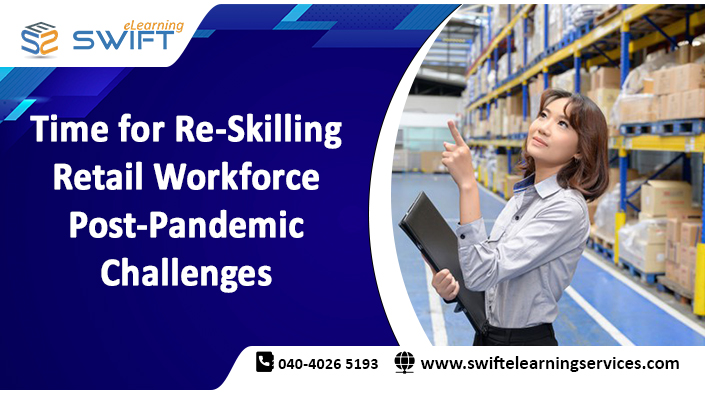Time for Re-Skilling Retail Workforce – Post-Pandemic Challenges
Such a situation was neither imagined nor experienced earlier! In fact, markets have seen fluctuations – time and again – for different reasons, but none is closer to this sort at the level of crippling the market and affecting the morale of the resources – causing a disturbance at every level possible. To put it precisely, in the wake of the Covid-19 pandemic, the whole world simply got a jolt.
Now, post-pandemic, after a year is passed, we are still in the recovery mode, garnering resources and infrastructure, and streamlining the workforce to get the best results. For various reasons such as forced recession, obstacles in project acquisition, employees in numerous organizations of different sizes, have either faced salary reduction or got removed from jobs. Some resources moved to other jobs anticipating lay off. Organizations had to recruit new resources strategically considering various factors.
The whole scenario paved the way for a situation where the existing workforce is lacking the required skill set to execute the running projects effectively. In this context, to emerge successfully from the Covid-19 crisis, organizations should start re-skilling their retail workforce through eLearning. Let us see why:
-
Because, the very model is remote learning:
In an unpredictable situation where it is almost a year since employees are working remotely, and still not sure about normalcy, online training is the preferred mode for re-skilling the retail workforce. eLearning has, time and again, proved to be the best way for employee training. Unlike traditional classroom training, employees can attend the training session remotely and get the benefits of eLearning courses – anytime, anywhere, and almost on any device, including mobiles.
-
Easy to learn and retain:
In eLearning development, the complex subjects can be turned into interactive and engaging learning sessions. Concepts are explained in a lucid way as innovative case studies, animations and interactivity help the content to be absorbed easily. Employees can re-visit courses multiple times and learn at their own pace. According to their pace of learning, employees can also complete the courses in a quicker way as well. Compared to a traditional training classroom session, eLearning training helps grasp concepts in an easier way and retain them well through various assessing ways.
-
Customized, tailored eLearning training:
In the changed scenario where the current skill set of the employees is becoming less relevant, re-skilling is the need of the hour for the existing employees and the training modules can be modified according to the emerging needs. With rapid authoring tools, modifications can be made amazingly fast and updated modules can be used for the training sessions.
Our Services: Best Learning Management System, eLearning Development, Convert Flash to HTML5




Leave a Reply
Want to join the discussion?Feel free to contribute!